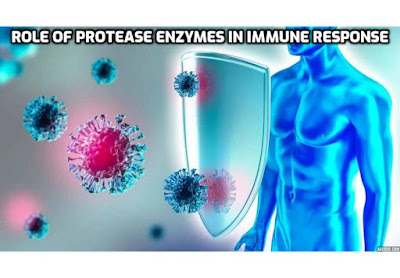Proteolytic enzymes, also known as proteases or proteinases, are essential for various biological processes, from digestion to immune response.
To ensure the precise control of these enzymes and prevent unwanted protein degradation, the body employs several mechanisms of proteolytic enzyme regulation.
Here, we delve into the strategies and systems that maintain the delicate balance of protein breakdown in the body.
Proteolytic Enzyme Families
Before exploring regulation, it’s important to note that proteolytic enzymes belong to different families, each with its own functions.
The major families include:
- Serine Proteases
These enzymes use a serine residue for catalysis and are involved in digestion, blood clotting, and immune response.
- Cysteine Proteases
These proteases use a cysteine residue for catalysis and are found in lysosomes, where they break down cellular waste and foreign invaders.
- Aspartic Proteases
Found primarily in the stomach and lysosomes, these enzymes are involved in digestion and protein degradation.
- Metalloproteases
These proteases require metal ions, such as zinc, for their activity. They have various roles, including extracellular matrix remodeling and immune regulation.
Regulation of Proteolytic Enzymes
- Zymogen Activation
Many proteases are initially synthesized in an inactive form known as zymogens or proenzymes. These zymogens must be cleaved or activated to become functional enzymes.
This activation process often involves the removal of a specific peptide segment, exposing the enzyme’s active site. This prevents premature proteolysis within the cell.
- Inhibition by Endogenous Inhibitors
Cells produce specific inhibitors, such as alpha-1-antitrypsin and tissue inhibitors of metalloproteinases (TIMPs), to control the activity of proteolytic enzymes. These inhibitors form reversible complexes with proteases, preventing them from degrading proteins indiscriminately.
- pH Regulation
The pH of cellular compartments can influence protease activity. For instance, the acidic environment of lysosomes is optimal for the activity of cysteine proteases found there, while other proteases are active at neutral pH.
- Feedback Mechanisms
Cells employ feedback mechanisms to regulate the production and activation of proteases. For example, when a cell senses an excessive level of a particular enzyme, it may reduce the synthesis of that enzyme to prevent overactivity.
- Proteasomal Degradation
Some proteolytic enzymes are themselves targeted for degradation by the ubiquitin-proteasome system. This ensures that proteases are not present in excess and can be rapidly removed when their activity is no longer needed.
Dysregulation and Disease
When proteolytic enzyme regulation fails, it can lead to various diseases and conditions:
- Protease Deficiencies
Genetic mutations or dysregulation of proteases can result in enzyme deficiencies, leading to conditions such as hemophilia (lack of clotting factor proteases) or lysosomal storage disorders.
- Excessive Proteolysis
In conditions like cancer, excessive protease activity can promote tumor growth and metastasis by breaking down the extracellular matrix.
- Autoimmune Diseases
Dysregulation of protease inhibitors can lead to autoimmune diseases where the immune system mistakenly targets the body’s own proteins.
Therapeutic Implications
Understanding proteolytic enzyme regulation is crucial for the development of therapies.
Drugs that modulate protease activity can be used to treat conditions like blood clotting disorders, inflammatory diseases, and cancer.
Additionally, gene therapies aimed at restoring proper protease function hold promise for various genetic disorders.
Watch this video – The Top Signs of a Digestive Enzyme Deficiency
Conclusion
Proteolytic enzyme regulation is a complex and finely tuned system that ensures the precise control of protein breakdown in the body.
Dysregulation of this system can lead to a range of diseases, highlighting the importance of ongoing research into protease regulation and its therapeutic implications.

